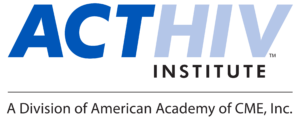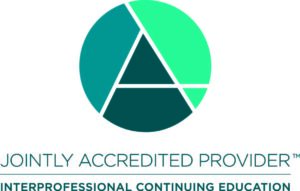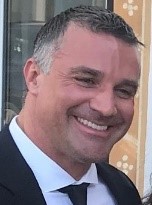Case Studies in Anal Cancer Prevention
|
Release Date: December 10, 2024 |
 |
Support for this activity has been made possible through an educational grant from Gilead Sciences. |
Webinar Highlights:
People with HIV (PWH) are at disproportionate risk for anal cancer and should routinely be screened to detect anal cancer precursors that can be treated to reduce cancer risk. By participating in this webinar, you will have the opportunity to enhance patient care by gaining a deeper understanding of the recently updated anal cancer screening guidelines for PWH. This webinar will further equip you with essential knowledge on how to implement these guidelines with your care team, helping to ensure PWH in your practice are receiving comprehensive, high-quality, evidence-based care. Additionally, the webinar will help you stay current with best practices in the ever-evolving field of HIV care. By learning about the latest effective primary prevention measures, you can ensure that your clinical practices are aligned with current guidelines. Lastly, the webinar emphasizes team-based care, offering valuable insights on collaborating with multidisciplinary teams to optimize care coordination and support for patients with HIV.
Learning Objectives
- Explain the rationale for anal cancer screening.
- Identify populations at-risk and indications for screening based on current International Anal Neoplasia Society (IANS) and CDC guidelines.
- Collaborate as a healthcare team to identify appropriate screening tools and effectively perform anal cytology and digital anal rectal exams.
What You Can Expect:
- Practical Application of the Science: Our expert faculty educators will guide you through this engaging and informative program, and offer suggestions on how you can apply the latest science to patient care.
- Patient-Centered Care: Learn from faculty who are directly involved in patient care about strategies for providing compassionate care that addresses individuals’ unique needs and challenges.
- Team Focused: Explore how HIV clinicians from multiple professions are collaborating to optimize patient care.
- Interactive: Engage in case studies and Q&A with faculty educators, enhancing your practical skills and knowledge.
By participating, you’ll not only enhance your professional development but also be better prepared to contribute as an HIV team member toward better healthcare outcomes for your patients.
Activity Faculty
|
|
Faculty Bios:
Michael Gaisa, MD, PhD, is a Professor of Medicine in the Division of Infectious Diseases at the Icahn School of Medicine at Mount Sinai in New York, NY. He directs the Program for the Prevention of Anal Cancer (PPAC) for The Mount Sinai Health System. His clinical focus and research interest is the prevention of anal cancer. He serves on the board of directors of the International Anal Neoplasia Society (IANS).
Naomi Jay, PhD, RN, NP, FAAN, is Assistant Clinical Professor, Anal Neoplasia Clinic Research and Education Center (ANCRE), University of California – San Francisco. Dr. Jay is among a very select group of medical providers and researchers who pioneered the field of anal neoplasia. She championed development of diagnostic techniques, treatments, and strategies for prevention of anal cancer. These developments culminated in the ANCHOR study which provided the definitive results validating that treatment of anal precancers prevents cancer. As a national team leader in the study, she developed quality assurance metrics for evaluating and certifying competency in HRA and treatment of anal lesions. Dr. Jay was a founding board member of the International Anal Neoplasia Society (IANS) and while serving as president, she initiated a Screening Guidelines for Anal Cancer Prevention Task Force which provided the first published international guidelines for anal cancer prevention.
Target Audience:
Accreditation and Credit Designation

In support of improving patient care, American Academy of CME, Inc. is Jointly accredited by the Accreditation Council for Continuing Medical Education (ACCME), the Accreditation Council for Pharmacy Education (ACPE), and the American Nurses Credentialing Center (ANCC), to provide continuing education for the healthcare team.
Physicians
American Academy of CME, Inc., designates this enduring material for a maximum of 1.0 AMA PRA Category 1 CreditsTM. Physicians should claim only the credit commensurate with the extent of their participation in the activity.
NPs and Nurses:
American Academy of CME, Inc., designates this educational activity for 1.0 ANCC contact hours
(0.5 Pharmacotherapeutic Contact Hours).
California
Provider approved by the California Board of Registered Nursing, Provider Number CEP16993 for 1.0 contact hours.
Physician Assistants
American Academy of CME, Inc. has been authorized by the American Academy of PAs (AAPA) to award AAPA Category 1 CME credit for activities planned in accordance with AAPA CME Criteria. This activity is designated for 1.0 AAPA Category 1 CME credits. Approval is valid until December 10, 2025. PAs should only claim credit commensurate with the extent of their participation.
All other members of the care team will receive a certificate of participation.
Disclosures
According to the disclosure policy of the Academy, all faculty, planning committee members, editors, managers and other individuals who are in a position to control content are required to disclose any relationships with any ineligible company(ies). The existence of these relationships is not viewed as implying bias or decreasing the value of the activity. Clinical content has been reviewed for fair balance and scientific objectivity, and all of the relevant financial relationships listed for these individuals have been mitigated.
Faculty Educator/Planner Disclosures
Michael Gaisa, MD, PhD: discloses relevant relationships with Merck, ViiV Healthcare.
Naomi Jay, PhD, RN, NP: No relevant financial relationships to disclose.
Planning Team:
Jonathan Colasanti, MD; Courtney Fletcher, PharmD; Jose Gutierrez, PhD, FNP-BC; Asa E. Radix, MD, PhD, MPH; John JD Juchniewicz, MCIS, CHCP, FACEHP; Natalie Kirkwood, RN, BSN, JD; Daiquiri Y. Robinson, MEd: No relevant financial relationships to disclose.
Roger Bedimo, MD, MS: Advisory Board/Consultant – ViiV Healthcare, Gilead Sciences, Merck, Theratechnologies, Janssen, Shionogi; Grant/Research Support – Merck
William R. Short, MD, MPH: Advisory Board/Consultant – ViiV Healthcare, Gilead Sciences; Grant/Research Support – Gilead Sciences, Janssen*
H. Nina Kim, MD, MSc: Grant/Research Support – Gilead Sciences
Sarah Smith, MHS, PA-C, AAHIVS: Advisory Board/Consultant – ViiV Healthcare, Gilead Sciences, Janssen, Merck; Speakers Bureau – ViiV Healthcare, Gilead Sciences, Janssen, Merck
*Relationship has ended.
This activity does not include information about off-label uses of approved agents and/or investigational agents.
The opinions expressed in this accredited continuing education activity are those of the faculty, and do not represent those of the Academy/ACTHIV® Institute. This educational activity is intended as a supplement to existing knowledge, published information, and practice guidelines. Learners should appraise the information presented critically, and draw conclusions only after careful consideration of all available scientific information.
Implicit Bias
Implicit bias refers to unconscious attitudes and stereotypes that influence our thoughts, judgements, decisions, and actions without our awareness. Everyone is susceptible to implicit bias, even clinicians. In healthcare, implicit biases can have a significant impact on the quality of care an individual receives. These biases can be both favorable and unfavorable, and are activated involuntarily without an individual’s awareness or intentional control.
Studies have indicated that healthcare providers’ incorrect perceptions can impact providers’ communications and clinical decision-making contributing to disparities in clinical outcomes. Addressing implicit biases in healthcare is critical to improving health outcomes and promoting health equity for all patients. Patient-centered care can reduce the impact of implicit bias, by treating each patient as a unique individual who may or may not hold beliefs associated with their backgrounds and circumstances. In addition, recognizing implicit bias in one’s own practice using techniques such as self-reflection and mindful clinical decision-making can ensure more equitable and effective care to all patients.
Over the past several decades, cognitive science research has demonstrated human behavior, beliefs and attitudes are shaped by automatic and unconscious cognitive processes. The healthcare profession is devoting greater attention to how these automatic and unconscious processes impact care including: (1) preferential treatment toward or against specific patient populations causing healthcare inequities, (2) influence patient-provider communications leading to misunderstandings and mistrust, and (3) impact access to healthcare and affect treatment decisions resulting in misdiagnosis, delays in treatment and specialty referrals and poor pain management.
Considering one might have unconscious biases and exploring them may be uncomfortable because the very idea that they exist may conflict with how clinicians perceive themselves. It is only by becoming aware of one’s unconscious biases that members of the healthcare team can take steps to mitigate them to ensure all their patients are treated receive quality healthcare.
Instructions on How to Receive Credit
There are no fees to participate in the activity. Participants must review the activity information including the learning objectives and disclosure statements, as well as the content of the activity. To receive CME/CE credit for your participation, please complete the post-assessment and program evaluation. Your certificate will be available for printing immediately.
Privacy and Contact
For more information about the American Academy of CME privacy policy, please access http://www.academycme.org/privacy.htm For any questions, please contact: [email protected].
Hardware/Software Requirements
This program should be viewed at a resolution of 1024 x 768 or higher using current versions of Microsoft Internet Explorer, Firefox, Chrome or Safari. A high-speed Internet connection is recommended.
Copyright
© 2024. This accredited continuing education activity is held as copyrighted © by American Academy of CME. Through this notice, permission is granted for its use for educational purposes only. These materials may not be used, in whole or in part, for any commercial purposes without prior permission in writing from the copyright owner(s).


